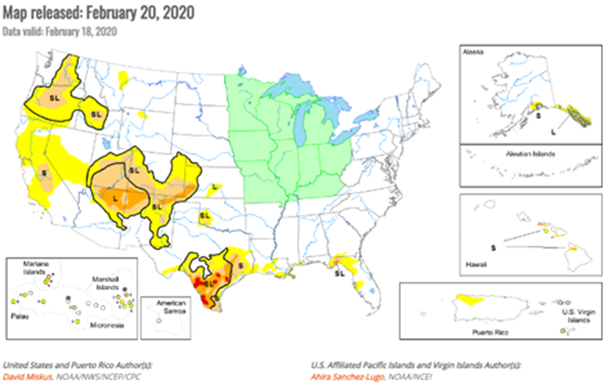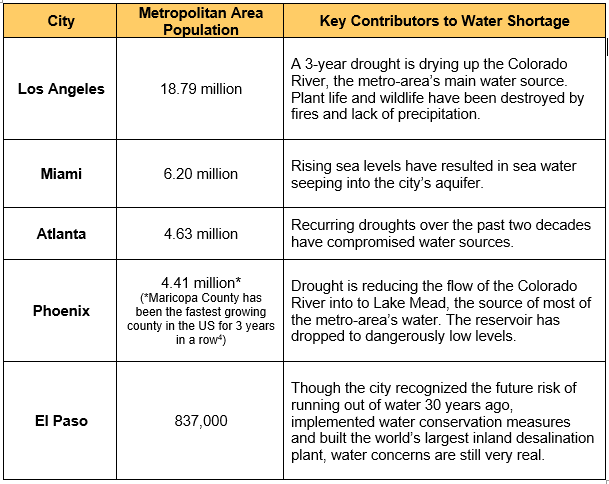Home › Blog › US Cities that May Face “Day Zero”

Every Thursday, the US Drought Monitor releases a map to illustrate areas of drought throughout the country[1].
The problem of drought in the United States is serious enough that it must be monitored weekly. Drought is caused by a lack of precipitation, as well as by warmer temperatures that expedite evaporation. Both are likely worsened by climate change.


The problem is also made worse by humans. We cut down trees to develop land, pollute the fresh water sources, neglect our water infrastructure thereby causing significant waste, and overuse our water sources without giving it a second thought. The world’s population is growing, our per-capita usage of water is growing, but our natural, fresh water sources are not.
Water scarcity is not a problem that is limited to the developing world; it is a global problem and it is happening right now in some of the largest cities in the United States.
Can “Day Zero” Reach US Cities? Yes.
In early 2018, there was a count-down to “Day Zero” in Cape Town, South Africa — the day when the water could run out. Although the day did not arrive, thanks to emergency conservation measures, citizens were forces to ration water and, in many cases, to purchase their drinking water under the watchful eye of armed guards.
Although many of us have learned to take it for granted, water is necessary to life; so you can imagine the angst among the population of this developed city at the southern tip of Africa when they had to stand in line to receive their water rations! This scenario is not an unlikely one. In fact, here are five major metropolises identified at the top of the list of US cities closest to Day Zero[2],[3]:

TIP: If you live in the United States, find out if your area is affected by drought by visiting the National Weather Service’s Local Drought Page. You will find lots of other links on this page to help you learn more about the water conditions in your area.
Visit Watergen’s website and follow us on Facebook!
[1] https://droughtmonitor.unl.edu/CurrentMap.aspx
[2] https://weather.com/forecast-change/news/2019-06-03-5-us-cities-that-could-potentially-run-out-of-water
[3] https://www.climaterealityproject.org/blog/three-american-cities-could-be-next-cape-town
[4] https://www.azcentral.com/story/news/local/phoenix/2019/04/18/maricopa-county-fastest-growing-us-census-growth/3506291002/